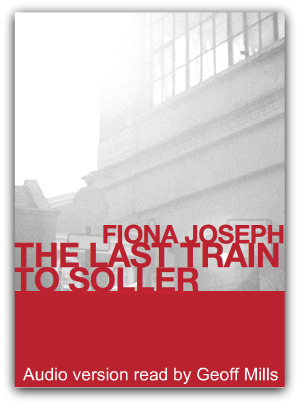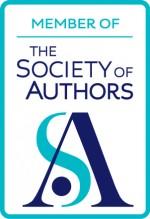Yesterday I went to the fabulous Writers’ Toolkit conference in my home town, Birmingham. If you don’t know about it then I suggest you check it out in time for next year. Here are my take-aways from the sessions I went to. I hope you’ll share yours.
Keynote address: Writing in the region, Stuart Maconie (Writer, TV & Radio Presenter, Journalist)
# It’s all about the writing. Everything else – the broadcasting, the talks, the DJ-ing – is secondary to the writing.
# Arthur Scargill’s father read the dictionary daily. He knew the power of words.
# Write something for money nearly every day. Maintain a slightly hack mentality – be brilliant, yes, but finish on time. [Comment: This approach reminds me of Seth Godin’s view on the importance of shipping.]
# Write with an audience in mind – have a bit of the marketeer about you.
Session 1: Hearing Voice – Writing for Radio
Panel discussion led by Freelance Theatre Director and Radio Producer, Jenny Stephens, with writer and producer, Nick Walker, and BBC Radio Producer, Mary Ward-Lowery
# The commissioning process begin with an idea. Summarise it in 200 words. Try to interest a producer in your idea or get him/her to read your script. [Tip: Listen to a lot of radio programmes with a view to approaching a producer whose work you like.]
# Commissioning is seasonal – be aware of the next commissioning round.
# The BBC is interested in writers new to radio, but not people who are new to writing.
# Timing is very important subject-wise. Topics go in and out of fashion. [Tip: No more on arranged marriages or knife crime.] Historical topics should have something important to say about today’s society.
# What makes a great radio drama script? Characters need to be active and on the move: the worst thing is having two characters in a room just talking. Give your characters heroic qualities. Surprise the listener often. Cut out the boring bits.
# Radio drama is closer to film or TV rather than stage. As a radio writer you can cut to different scenes more easily than in a stage play.
Session 2: Setting out your stall – Working with Literature Festivals
Panel Discussion led by Jonathan Davies, with Cathy Bolton (Director of Manchester Literature Festival) and Matt Holland (Director of Swindon Festival of Literature)
# Literature festivals are programmed 6 – 9 months in advance so writers need to be organised.
# Each festival has its own vibe. Have a look at previous events and ask yourself how you would/could fit in.
# New and unknown writers are more welcome than you think – it’s not just about the big names (although these are important).
# If you’d like to contribute to a literature festival, make a direct approach to the organiser through email or by post. Be sensible and thoughtful about it. Don’t just say, “I have a new book out. Can I appear at your festival?” Actually think about what you can offer that’s of value. Include samples of your work or links to a website.
# Grants for the Arts funding may be available for some projects.
Session 3: Getting around – Networking as a Writer
Three-way discussion between Lara Ratnaraja (Cultural Consultant), Writer Jo Bell and Nine Arches Press publisher, Jane Commane
# Be relevant. There is nothing worse than being sold to. [Comment: I blogged about my networking turn-offs here]
# Always listen to people (properly) and engage with them intelligently.
# Be generous. There’s no need to hoard contacts as good karma usually comes through sharing (Yes!!!)
# Healthy competition is natural and okay; rivalry is not.
# Don’t connect only with writers. Read blogs from other art forms, e.g. visual arts, and look for possibilities to collaborate across different media.
# Social media relationships (Facebook, Twitter) counteract the isolation of being a writer BUT don’t vent or gripe, and avoid posting rejections from publishers.
# Good ways to meet and network with other writers include starting your own group or writing book reviews.
# Final note: You can find each speaker on Twitter @lararatnaraja @Jo_Bell @NineArchesPress
Session 4: Off the shelf – Working with libraries
Panel discussion led by Jessica Harris (Literature Relationship Manager, Arts Council England), with Sandy Mahal (The Reading Agency ) and Brian Gambles (Birmingham City Council)
# Arts Council England has taken over responsibility for libraries and museums.
# The Reading Agency exists to get people reading more and to connect writers to readers in libraries across the country.
# Librarians are generally very creative when putting on events. They want to showcase new writing talent, so make an approach.
# In real terms library footfall has been falling, but digital visits are going up.
# The new Library of Birmingham, due to open in July 2013, will provide quality public spaces for individuals and partner organisations. Some spaces will be bookable, without charge.
# What can libraries do for writers? Well actually, what can writers bring that’s new and fresh? Libraries are looking for engagement, so writers need to put their creative heads on.
Closing address: Beyond Bohemia – Giving writers what they want by Ruth Borthwick, Director of the Arvon Foundation
Ruth, who calls herself a literature activist, discussed the fascinating origins of Arvon and outlined mouth-watering new plans to bring Arvon to the city.
Thanks to Jonathan Davidson (Writing West Midlands) and Sara Beadle (Birmingham Book Festival) for this great and hugely affordable day of professional development. I’m already looking forward to the next one.
If you were at the Writers’ Toolkit let me know what your take-aways were. If you didn’t make it then you can follow some of the chat on Twitter by using the hashtag #writerstoolkit
Fiona



